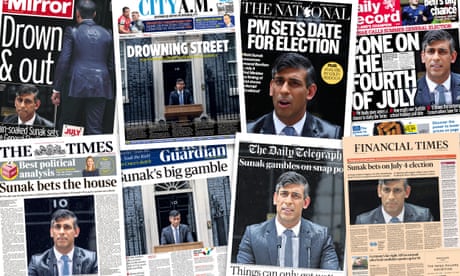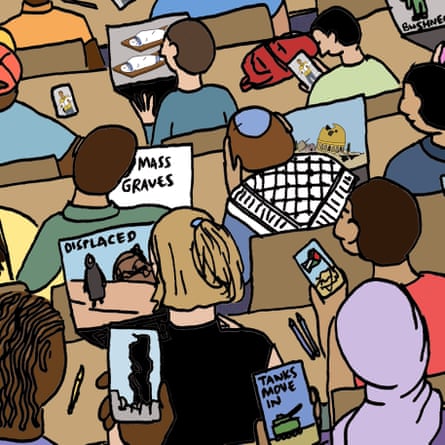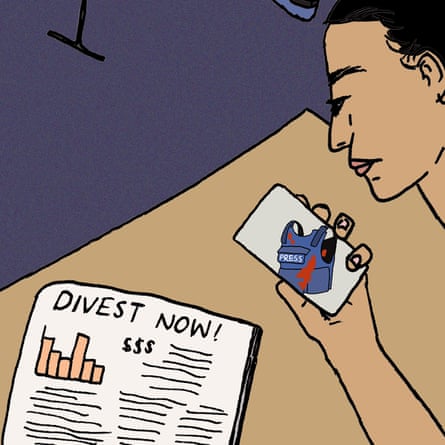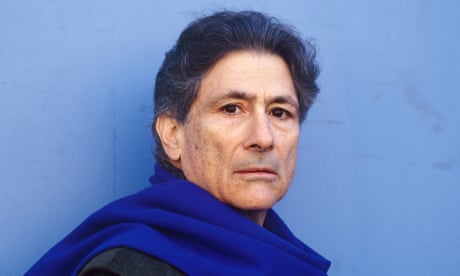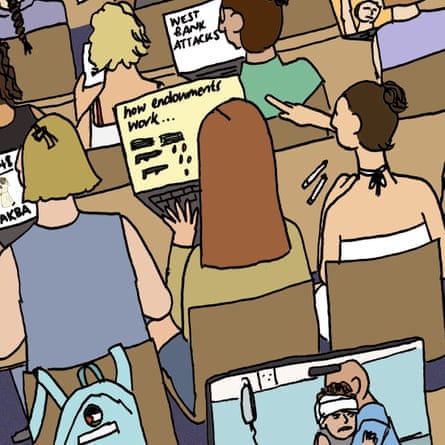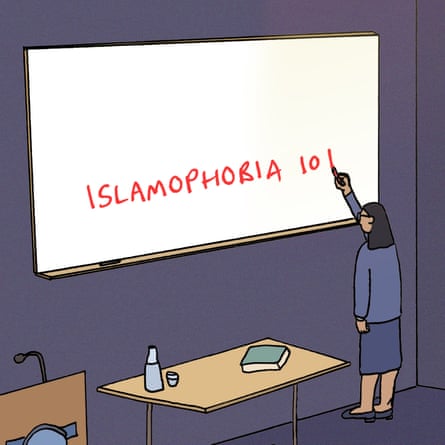Pakistan Journalist Unions Slam ‘Draconian’ Defamation Law
Journalists, human rights activists and opposition political parties in Pakistan voiced concerns over the negative impact on press freedom and freedom of expression in general in the country due to the adoption of a Defamation Law by the Punjab provisional assembly on Monday, May 20. They called the law “draconian” and demanded its withdrawal in its present form.
Journalist organizations in the country accused the newly elected coalition provincial government of bypassing an agreement with them to delay the passing of the bill in order to incorporate the concerns of journalists, and instead rushed to pass the bill in the assembly in the middle of the night amid protests by the opposition.
The legislative assembly of Punjab, Pakistan’s largest province, adopted the Defamation Bill 2024 with a voice vote after rejecting all the amendments proposed by the opposition Pakistan Tehreek-e-Insaf (PTI, who sit in the assembly as members of the Sunni Ittehad Council (SIC)). The government’s move led to a spontaneous boycott of the proceedings by the journalists sitting in the press gallery of the assembly.
The journalist unions claimed that the government led by chief minister Maryam Nawaz of Pakistan Muslim League-Nawaz (PML-N) refused to send the bill to a select committee for wider consultation as demanded by them. They claim that it was agreed during a meeting between them and the ministry of information Azma Bukhari a few days ago.
The proposed legislation defines defamation as drafting and dissemination of “fake news” on media platforms including on the social media sites about individuals, entities or persons holding the constitutional posts and provides for a fine of up to 3 million Pakistani Rupee by a tribunal appointed by the government upon the receiving of a complaint. The tribunal is expected to decide the matter within six months.
An assault on media freedom
The main opposition party, the PTI, held a press conference on Tuesday calling the bill an attempt to silence independent voices in the country. It expressed its support to all the actions announced by the journalist unions in the country to oppose the bill.
The Pakistan Federal Union of Journalists (PFUJ) termed the bill as “fascist” claiming it would make it impossible for the journalists to carry out their work and expose wrongdoings in the government.
“The bill features a dangerously loose definition of defamation and imposes much higher penalties and blanket restrictions on commenting on ongoing cases. The sole purpose of this bill is to strike fear in anyone who may be contemplating criticizing or expressing their frustrations with those in power,” the PFUJ said in a statement on May 18.
Journalists have linked the bill with the ongoing attempts by the newly elected government to curb media freedom in various ways. Pakistan’s federal government has already issued a warning in February that it will take strict action against persons involved in circulating files marked as “secret.” Pakistan’s defense minister Khawaja Asif was reported saying that any such person found doing so would be liable to a prison term of a minimum two years.
The Council of Pakistan Newspaper Editors (CPNE) issued a statement on Monday calling the bill “draconian” and announcing it will launch a campaign against it. The CPNE also claimed that all major journalist organizations in the country, Pakistan Broadcasters Association (PBA), All Pakistan Newspapers Society (APNS), Pakistan Federal Union of Journalists (PFUL) and Association of Electronic Media Editors and News Directors (AEMEND) oppose the bill in its current form.
These groups issued a joint statement last week alleging that the bill and moves by the federal government “threaten the fundamental right of freedom of expression” and demanded greater consultation with all the stakeholders before bringing any such legislation.
The bill was also criticized by the Human Rights Commission of Pakistan (HRCP). It claimed that the bill creates a hierarchy in matters of defamation with the persons holding constitutional posts having the privilege of not attending the court proceedings. It claimed that the bill attempts to create a parallel judicial structure which violates fundamental rights. The HRCP also questioned the rationale of providing for a preliminary fine, calling it an attempt to intimidate common people from expressing their views.


Anti-fake news or anti-free speech? The debate over Punjab’s new defamation law
The passing of another dangerous law, which repackages the criminal defamation laws in civil garbs, is counterproductive at best and nefarious at worst.
On May 20, the Punjab Assembly passed the Defamation Bill, 2024, with the stated aim to provide “protection from false, misleading and defamatory claims via print, electronic and social media against public officials and private citizens”. Critics believe, however, that the law’s real purpose is much more nefarious — that it actually aims to muzzle free speech and inhibit dissenting voices.
As we attempt to pick through the law’s merits and lacunae, let us begin by underscoring this basic principle — strengthening defamation laws must not be a not a tug-of-war between censorship and unfettered free speech. The former should never feature in a democratic society, while the latter can be addressed through appropriate mechanisms.
Unfortunately, in Pakistan, the state often uses the pretext of curbing fake news or online abuse to weaponise defamation laws against critics to intimidate, harass, and silence them. The Punjab defamation law, too, exemplifies this regressive approach.
Hasty regulation
Free speech is not absolute; it operates within a framework of checks and balances. Articles 4(2)(a) and 14(1) of the Constitution of Pakistan protect the reputation and dignity of individuals, while Article 19 guarantees freedom of speech “subject to any reasonable restrictions”.
However, these restrictions must be narrowly construed to avoid undermining the fundamental rights they are supposed to protect. Civil defamation laws in Pakistan often abuse this concept, being drafted in overly expansive terms that make a wide range of statements actionable as defamation.
The hasty manner in which the Punjab defamation bill was steamrolled, and the procedure prescribed in it makes obvious that the intent was never to address the shortcomings of its predecessor law, the Defamation Ordinance 2002, but to provide the government with toothier legislation to target dissent and free speech.
This is evident in the language of the Statement of Object and Reasons of the bill, which states that it protects “public officials” from defamatory claims as they “damage the reputation and image of public figures or the government by defaming, slandering, and libelling them”.
Further, the new law prescribes preferable treatment for holders of “Constitutional Office”, which has been defined in the law as, including other prominent positions, the Prime Minister, Chief Justice of Pakistan, and the Chief of Army Staff. While a defamation tribunal has been given jurisdiction under the new law, cases against the holders of the Constitutional Office are to be filed in the Lahore High Court. This disparity indicates that the grievances of the state and its citizens are not given equal status before the law. The former has been placed above the latter.
The issue of fake news is complex and has stumped political administrations across the world. It defies reason how the Punjab government can claim to address this issue when it drafted the bill and passed it in mere days without consulting any stakeholders. This omission is particularly glaring given that the mainstream and digital journalists’ community, a group that not only has credible insight on the topic, are the ones most likely to be targeted under the new law.
We have seen in the past how the actual perpetrators of fake news and hate-mongering operate unchecked while those committed to telling the truth are targeted under defamation laws. Hence, civil society organisations labelling the new law as “draconian” and a “curb on free media” is completely justified.
More specifically, the new law falls short of bringing specificity to the concept of ‘defamation’. Case law establishes that the following five factors constitute defamation:allegations should be false, baseless, and unfounded;
allegations on the face of it should be defamatory or derogatory in nature;
allegations should have been published in widely circulated newspapers or spoken in a large gathering;
wording used should have been made with malice without reasonable cause and justification; and
the allegations should have been directly attributed to the plaintiff.
All five factors require evidence to be cited. Therefore, summary procedure as prescribed in Section 11(1) of the new law is not desirable, particularly to prove malicious intent. On top of that Section 23 makes the Law of Evidence inapplicable to proceedings under the new law, Section 10(6) requires the defamation tribunal to decide the case in 180 days, and Section 15(1) allows the tribunal to issue a preliminary decree of a minimum of Rs3 million. Combined, these provisions show that the government is looking for expeditious conclusion of cases in a vengeful manner at the expense of undermining the constitutional guarantees of fair trial and due process.
Reminiscent of Peca
Criminalising defamation deters victims of sexual harassment and abuse from speaking out against their perpetrators, intimidates journalists into silence, and penalises political opponents, critics, activists, and citizens for expressing dissent. In this respect, the new Punjab defamation bill is not too different from the Prevention of Electronic Crimes Act introduced by the PML-N in 2016. Peca too had the stated aim of curbing harassment and hate speech, but its intended and actual effect was to crush dissent and free speech.
The PML-N government, during its previous tenure in the centre, used Peca to harass the PTI and its party workers. The law was also used against journalists critical of the military at a time when the national media was dominated by the Dawn leaks inquiry report.
The interior minister at that time, Chaudhry Nisar, had warned that “anti-institution propaganda would not be tolerated” and that defamation laws would be used against the perpetrators. Subsequently, the Federal Investigation Agency claimed that several “anti-army campaigners” had been identified. Members of the PTI social media team were arrested, while its party offices were raided, and equipment seized.
The roles were reversed when the PTI came into power in 2018. Workers and supporters of the PML-N were charged under Peca and the Pakistan Penal Code for allegedly running a smear campaign against state institutions such as the judiciary and the military. The PML-N also claimed that its party’s social media activists were being picked up and disappeared. The roles switched once again when the coalition government was formed in 2022, and politicians, and workers associated with the PTI started getting victimised under Peca.
The case of PTI leader Azam Swati is one such example. He was arrested by the FIA under Section 20 of Peca, as well as Sections 131, 500, 501, 505, and 109 of the PPC for making controversial posts about senior military officers, including the former army chief.
Interestingly, sections 10 (cyber-terrorism), 11 (hate speech), and 20 (offences against the dignity of a natural person) of Peca, which are frequently used by the state to charge individuals, do not cover comments or speech pertaining to public officials or institutions. But this has not stopped sitting governments from using them as a weapon against opponents and journalists alike. A first information report under the aforestated sections of Peca is often paired with sections 499 (defamation) and 505 (statements conducing to public mischief) of the PPC.
Previously, the FIA also frequently used to add Section 124A (sedition) of the PPC to the charge sheet, which criminalised criticism of the federal and provincial governments. But this was struck down by the Lahore High Court last year for being inconsistent with the Constitution. This decision came in response to several petitions filed by parties on the grounds that the law was being used by the government against political opponents and had a deleterious effect on free speech and dissent.
It is also time to repeal the criminal defamation laws under both PPC and Peca for being obsolete. This issue requires the immediate attention of the government. The passing of another dangerous law, which repackages the criminal defamation laws in civil garbs, is counterproductive at best and nefarious at worst.
How to actually address fake news
If the government is genuinely serious about addressing the menace of fake news, additional legislation is not the solution. Instead, a whole-of-society approach is needed to address the declining trust in mainstream media and the over-reliance on social media.
Fake news activities are not disorganised or sporadic. Rather, they are highly organised and systemic. So, it makes no sense for our approach to addressing them to be haphazard, untargeted, or ill-informed.
A whole-of-society approach requires the government, technology companies, news and media industry, educational institutions, and individuals to work in tandem and adopt a series of standard operating procedures. Such a multilateral approach is unlike the unilateral approach of the Punjab government in passing the new law.
The government must encourage independent and professional journalism. The world is complex and rapidly changing which creates anger and anxiety amongst people, who have to try and make sense of it. A healthy network of journalists free from external interference serves to alleviate such concerns and establish trust in society.
This also requires the government not to crack down on journalists, or impose censorship, which not only makes it harder for journalists to do their job but also creates space for misinformation to spread unchecked.
Educational institutions must prioritise coaching students in news literacy, which includes the ability to analyse information and be sceptical about what they read and watch. Individuals must ensure they consume their news from a variety of sources.
Technology companies also have a huge role to play. They must identify fake news through algorithms and crowdsourcing, reduce incentives for those who profit from disinformation, and improve online accountability by ensuring bots are eradicated and all users operate under their own name. The news industry must also focus on high-quality investigative journalism and call out fake news and disinformation as an industry practice.
The political leadership must stop fooling the public by using the term ‘fake news’ as a catchphrase to introduce self-serving and anti-free speech legislation. The Punjab government would do well to pay heed to the widespread criticism it has faced over this matter.

The writer is a lawyer based in Lahore with an active interest in climate justice. He is also the Fakhruddin G. Ebrahim fellow at the Human Rights Commission of Pakistan.

Over 80 civil society bodies, journalists reject ‘draconian and regressive’ Punjab Defamation Bill

Amid protests, Punjab Assembly passes defamation law

Dangerous law

